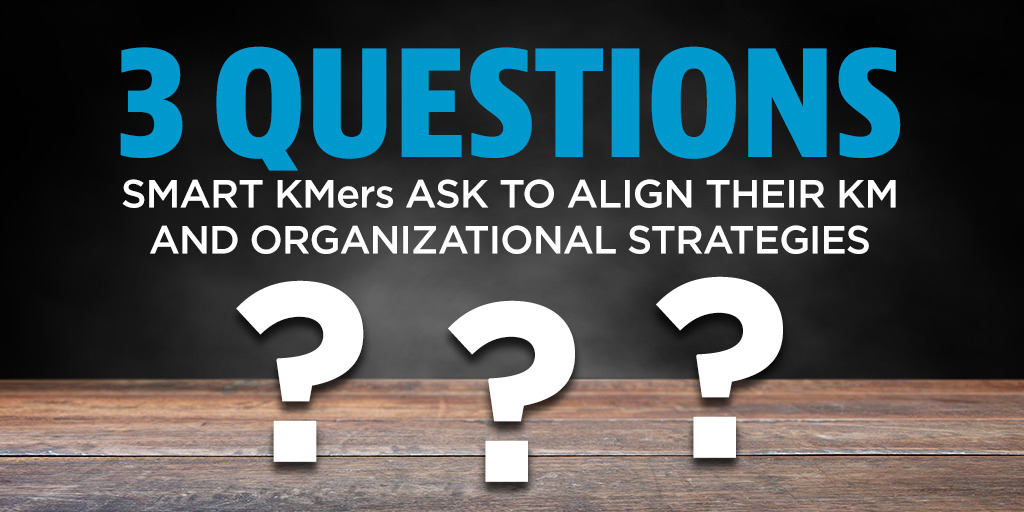For years I have been curious about how organizations develop and execute strategies. I think my curiosity comes from countless articles and research that says a large percentage (up to 70% according to one source) of strategies never make it off the paper they are on and into action. Or, maybe it’s because one of the most frequently asked KM questions that APQC gets is “how do I align our KM strategy to the organization’s objectives and strategies?”
 I admit the alignment question is a tough one to respond to quickly. After all, “it depends” on what the overall organizational and business objectives and strategies are and what outcomes are expected. It also “depends” on whether or not the KM team knows and understands them. I’ve seen too many KM teams sit down to develop a KM strategy and not have the information they need to develop a strategy focused on what the business needs.
I admit the alignment question is a tough one to respond to quickly. After all, “it depends” on what the overall organizational and business objectives and strategies are and what outcomes are expected. It also “depends” on whether or not the KM team knows and understands them. I’ve seen too many KM teams sit down to develop a KM strategy and not have the information they need to develop a strategy focused on what the business needs.
The most important thing you need is a process to follow – it’s called a strategic planning process. In January, Darcy Lemons and I hosted a webinar on strategic planning for KM and discussed the process and supporting tools needed.
As an input into the process you will need to collect some data and information. This information typically includes the organization’s overall goals and objectives; business and stakeholder needs; critical knowledge needs; and an assessment of existing knowledge management capabilities and processes.
You can jump start this process by asking your key stakeholders what I believe to be the top three questions that yield the best information:
- What are your goals, aspirations and deliverables for the next 12-18 months (or simpler, what do you need to accomplish)?
- Are there current and pending challenges or issues that are knowledge-related?
- What can be improved if knowledge and expertise are better shared and transferred?
These questions will yield a lot of information for you to deeply analyze and develop a better understanding of the business’ knowledge needs. It will help you shape the things KM needs to accomplish or the strategic objectives.
One of the biggest mistakes KM teams make is having too many strategic objectives and goals. My advice….reduce them! Prioritize to a critical few that are really going to make a difference, e.g., show impact on business outcomes, demonstrate value to the business stakeholders, or help the knowledge worker (your customer) do his/her job better, cheaper, faster…and, help them grow professionally.
From my experience with strategic planning, these getting started tips and techniques I’ve outlined will get you on the path to aligning your KM strategy to the bigger organizational picture. There’s more, but I’ll save for another blog. Good luck and tell me if this helps. We will all benefit.